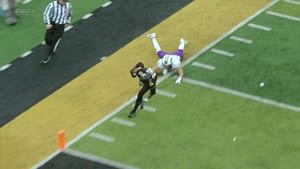Simone Biles’ Battle with the Twisties: A Journey of Resilience and Triumph
Simone Biles, the gymnastics icon known for her gravity-defying skills and unparalleled achievements, has faced challenges that go beyond the physical demands of her sport. In a new revelation, it has come to light that Biles experienced the “twisties” ahead of the 2016 Rio Olympics, a mental block that would later become widely known during the COVID-delayed 2020 Tokyo Games. This insight comes from a new book by Biles’ longtime coach, Aimee Boorman, titled “The Balance: My Years Coaching Simone Biles.”
For those unfamiliar, the “twisties” is a phenomenon where gymnasts lose their sense of spatial awareness while performing twisting skills, leading to disorientation mid-air. This can be incredibly dangerous, as Boorman explains, “When this happens to a gymnast who is flipping ten-plus feet in the air and they lose body awareness in space and time — not knowing if they’re going to land on their back, feet or head — it’s much more dangerous [than the ‘yips’ in baseball or golf].”
Boorman, who coached Biles from the tender age of 7 through the Rio Olympics, shares in her book how she first noticed Biles feeling the pressure during her third world championships in Glasgow, Scotland, in October 2015. By January 2016, Biles was struggling with twisting on almost any skill. “Simone couldn’t twist — on basically anything!” Boorman writes. The question on everyone’s mind was, “How did she get rid of it?” Unfortunately, there was no magic solution.
When Biles realized her mind and body had become disconnected, she would physically stop herself from twisting during her routines, fearing she might get lost in the air. Boorman emphasizes that she never pushed Biles to attempt twisting before she was ready. “She was already the back-to-back-to-back world champion,” Boorman writes. “Simone knew how to twist.” Instead, Boorman focused on providing patience, support, and reassurance, working closely with Biles’ parents and therapist to navigate this challenging period.
After several weeks, Biles regained her confidence and comfort with twisting, just in time for Olympic qualifying. “Simone needed time, support and reassurance that I believed in her,” Boorman writes. This approach paid off, as Biles competed for the first time that 2016 season at the Pacific Rim Championships in Everett, Washington, in April, and won the all-around. “Thankfully the twisties had passed without injury,” Boorman writes, “and in the process, we demonstrated that an elite gymnast can avoid training elements for weeks without losing their skills.”
In Rio, Biles made history by becoming the first American gymnast to win four gold medals in a single Olympics, with Boorman serving as the head coach of the U.S. team. However, the twisties would resurface in early 2019, as Biles shared with Olympics.com in January 2020, more than a year before the Tokyo Games.
During the Tokyo Olympics, Biles experienced the twisties while training on the floor the morning after team qualifying. The next day, she withdrew from the team competition after becoming lost in the air on her first vault. She later withdrew from every event except the balance beam final, where she earned a bronze medal. Her decision to prioritize her personal safety over medals made her a prominent figure in the mental health movement in sports and beyond.
“The Balance,” co-written by Boorman and journalist Steve Cooper, is set to release on Tuesday. In the book’s foreword, Biles writes, “Coach Aimee and I have a special bond. She always did what was best for her athletes personally, even if someone told her it might not work. … Coach Aimee understands that every athlete works, processes instruction and learns differently, and she caters to that.”
- Simone Biles faced the twisties before the 2016 Rio Olympics.
- Her coach, Aimee Boorman, provided support and patience.
- Biles’ experience highlights the importance of mental health in sports.
As we reflect on Biles’ journey, it’s clear that her story is not just about medals and records but also about resilience, courage, and the importance of mental well-being. Her experiences serve as a powerful reminder that even the greatest athletes face challenges, and how they overcome them can inspire us all.
Originally Written by: Alyssa Roenigk





















